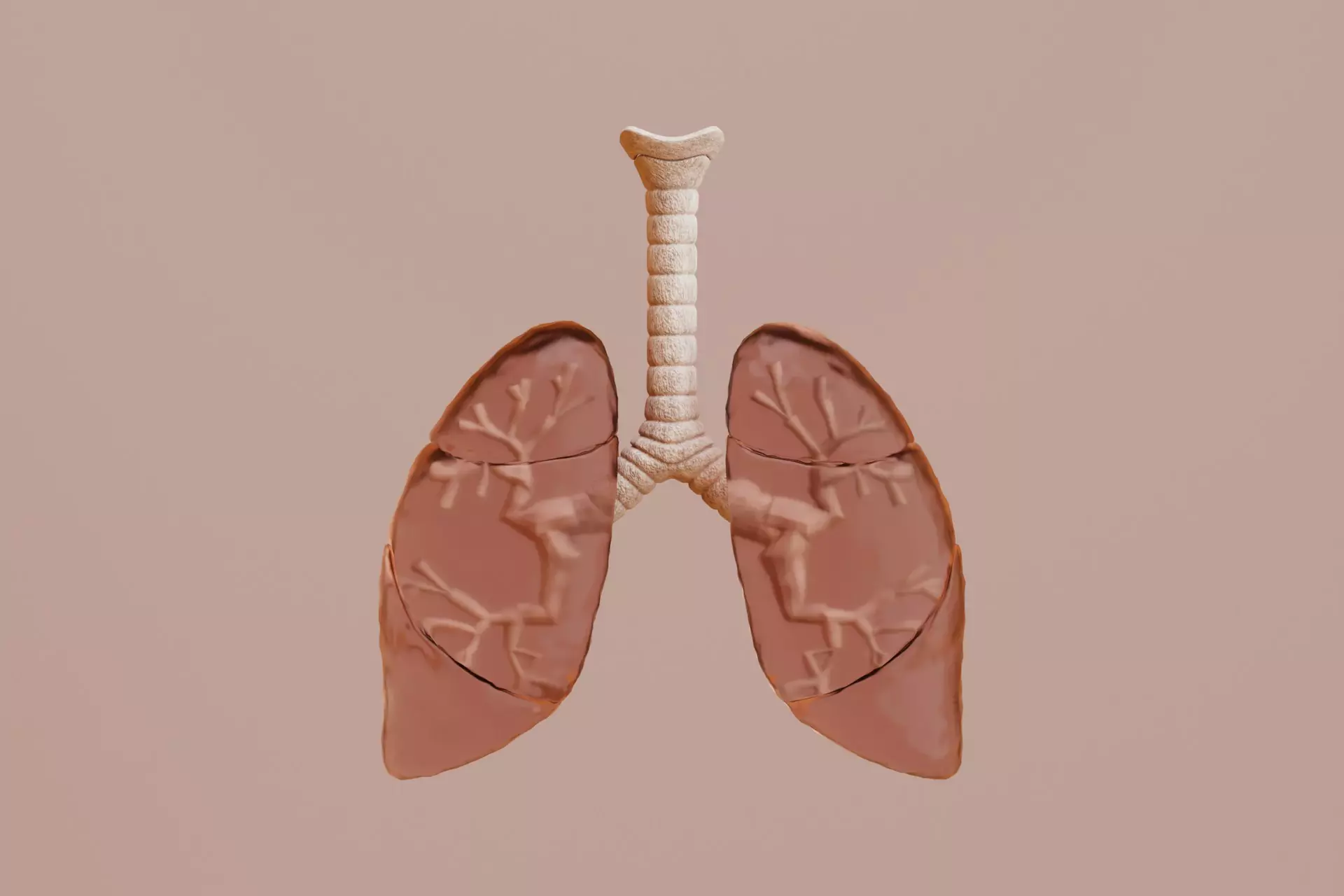18 Physical, Mental and Spiritual Benefits Of Deep Breathing

Breathing directly influences your physical and mental health. It can enhance oxygen flow, reduce stress, and promote better health.
But think about how you’re breathing. It’s quick and shallow, and you’re getting far less oxygen than you need.
This puts you in a fight-or-flight state. Less oxygen is delivered to your body and your brain is exhausted from keeping your body working properly.
You don’t want that.
And the solution lies in deep breathing. Deep, rhythmic breathing puts you in a state of calm and offers you numerous physical, spiritual, and mental health benefits.
Intrigued?
Allow us to share 18 physical and mental health benefits of deep breathing so you can include it in your routine. Let’s get in!
Why deep breathing is so powerful?
Taking slow, deep breaths might seem simple, but it can have a huge impact on how you feel.
Practicing deep breathing regularly can help you feel more relaxed, focused, and energized. Here are 18 ways this simple habit can improve your health:
Boosts lung capacity and efficiency
On average, you use 10% of your total lung capacity. This reduces the amount of oxygen entering your lungs and hence, delivered to the body.
However, during deep breathing, you’re able to use up to 60% of your lung capacity. More oxygen enters your body, which leads to an improvement in overall oxygen delivery. This reduces the workload on your heart and allows it to rest (which is a good thing).
Strengthens the immune system
Deep breathing also helps improve blood circulation, which in turn reduces stress hormone levels. What happens is that shallow breathing results in increased levels of cortisol in your body.
This suppresses your immune system and makes it susceptible to infections.
However, deep breathing induces a relaxation response and research indicates that this significantly lowers your cortisol levels and enhances immunity.
This allows your body to effectively clear pathogens and viruses from your blood, resulting in a stronger immune system
Lowers blood pressure and improves heart health
Simply put, deep breaths dilate your blood vessels and make it easier for your heart to pump blood.
Research shows that this lowers your blood pressure and reduces stress and anxiety. Moreover, increased oxygen causes your lungs to expand, producing more nitric oxide.
This results in improved blood circulation, lower blood flow, and reduced potential for heart-disease-causing plaque buildup in your arteries.
Reduces inflammation in the body
Deep breaths make way for more oxygen to enter your lungs.
This triggers the relaxation response from your body, helping it lower stress hormones that contribute to inflammatory processes in the body.
Promotes detoxification by releasing toxins
Better oxygenation of the tissues not only helps provide nutrients to your body but also allows for the effective removal of metabolic waste.
This leads to an improvement in your cellular health as well as overall body functions.
Reduces stress and anxiety
According to research, our brain associates emotions with our breathing patterns. Your breathing is slow and steady when you’re happy and gets shallow and irregular when you’re stressed.
So when you slow down your breathing, you’re signaling your brain that there’s no stress or challenge. As a result, you feel relaxed.
Improves focus and mental clarity
Several studies have indicated that deep breathing helps lower stress levels. However, one highlighted that lower stress levels lead to improved concentration and cognitive performance.
This is helpful in high-pressure environments where mental clarity is crucial for better performance.
Elevates mood by releasing endorphins
A study published in PMC found that participants who engaged in deep breathing reported significant improvements in their mood.
The main reason behind this is the release of endorphins, a feel-good chemical, which is released due to an increased concentration of oxygen in your brain. As a result, you’ll have more positive emotions and an overall improvement in your mood.
Helps manage depression and emotional imbalances
A study demonstrated major improvements in depression symptoms in patients with major depressive disorder (MDD).
And that’s not it! These were the patients who didn’t respond to antidepressants but showed a whopping 50% reduction in depression scores after just 8 weeks of practice.
Promotes quicker reflexes and better decision-making
Slow, deep breathing helps calm your nervous system and improve your decision-making abilities and reflexes.
The result is an improvement in your cognitive performance even under high-pressure conditions and your improved ability to be quick at thinking and making high-stakes decisions.
Promotes mindfulness and presence
Deep breathing helps promote mindfulness. It helps you improve your concentration. This makes you more aware of your thoughts and feelings and better understand your emotions without judgment.
You’re able to foster greater emotional acceptance and become more aware of your life’s experiences.
Connects you to a sense of inner peace
Deep breathing cleanses your energy channels and helps promote your inner peace by clearing your mind from the chaos.
In a way, you tap into divine consciousness where you’re able to feel tranquility despite life’s challenges and experience a deeper spiritual connection.
Cultivates emotional resilience
We all have a bad habit of reacting impulsively to situations. But when you practice deep breathing, you’re able to cultivate emotional resilience, allowing you to react thoughtfully to situations.
When you’re able to acknowledge your emotions this way, it becomes easy for you to manage stress, anxiety, and other difficult emotions.
Encourages a deeper connection to yourself and others
Deep breathing doesn’t only make us more aware of ourselves. When we’re more mindful of our feelings, we automatically become more attuned to others’ emotions and experiences.
This helps foster empathy and shared deeper connections, making our daily interactions more meaningful and beautiful.
Improves sleep quality
According to research, participants who practiced deep breathing reported better sleep outcomes. This is because deep, rhythmic breathing helps reduce anxiety levels which often hinder restful sleep.
Also, practicing deep breathing before bedtime signals your body that it’s time to slow down and unwind, improving your sleep quality.
Increases energy levels
Engaging in deep breathing helps increase oxygen flow throughout the body which boosts your energy levels. Improved oxygen circulation also enhances your cognitive function, helping you stay energized throughout the day.
So if you’re tired of midday slumps and intense laziness after periods of intense focus, give deep breathing a try.
Enhances athletic performance and recovery
Deep breathing helps athletes in two major ways.
- It helps manage their heart rate and reduce fatigue during workouts.
- It helps in muscle recovery by promoting muscle relaxation post-exercise.
Supports weight management
Chronic stress is linked to emotional eating. Studies have suggested that engaging in deep breathing helps promote a sense of calm, thereby mitigating these effects.
This helps them resist cravings and make healthier food choices, ultimately assisting them in their weight management journeys.
So, why not try deep breathing right now?
Life’s busy and we all find ourselves occupied 24/7.
While adopting healthy habits sounds difficult and practically impossible given your situation, practicing deep breathing is something you can do right now.
How about we do it together?
Take a deep breath through your nose and let your belly expand. Hold it in for a few seconds and then slowly exhale through your mouth.
Did you feel a sudden sense of calm? Great.
Repeat this exercise for a few minutes daily and see an overall improvement in your health. You’ll be surprised by how big of a difference this simple exercise makes.
And remember, if you're seeking tailored fitness advice or expert care, QCG can help you find leading specialists abroad to support your wellness journey.

